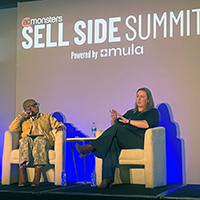A California sSenator proposed legislation last week to set privacy standards for Radio Frequency Identification technology.
 |
| Senator Debra Bowen |
Senator Debra Bowen (D-Redondo Beach) said that retailers and manufacturers hope to save millions of dollars by automating the retail supply chain with RFID tracking systems, but that privacy advocates fear the technology will become omnipresent and give marketers another method to track people’s whereabouts and habits.
“The privacy impact of letting manufacturers and stores put RFID chips in the clothes, groceries and everything else you buy is enormous,” Bowen said in a statement. “There’s no reason to let RFID sneak up on us when we have the ability to put some privacy protections in place before the genie’s out of the bottle.”
SB 1834 requires any business or state government agency using RFID technology with the capability to track products and people to:
-
Tell people they are using an RFID system that can track and collect information about them.
-
Get express consent before tracking and collecting information.
-
Detach or destroy RFID tags that are attached to a product offered for sale before the customer leaves the store.
Manufacturers and retailers had long debated whether tags should be embedded at case and pallet level or on individual packaging. But after privacy advocates cried foul, the idea to tag individual packages was sidelined. Numerous consumer packaged goods companies are testing the technology at the pallet and case level, however, at least one company has conducted tests on individual packaging, which caught Bowen’s attention.
Bowen cited privacy concerns about a test that a Wal-Mart in Broken Arrow, OK, and Procter & Gamble conducted last year.
To determine if the real-time data P&G received from RFID tags attached to one of its lipsticks in the Wal-Mart was accurate, a Webcam was set up in an isle to monitor the on-shelf inventory. Some media reports said that Wal-Mart and P&G had been spying on customers and had allowed them to walk out of the store with RFID tracking devices attached to the packaging.
When asked, in light of all of the privacy concerns about RFID technology, if it had considered that the test could be construed as a violation of consumers’ privacy, Jeannie Tharrington, a P&G spokesperson said, “It was not our intention.”
She said the test was conducted solely to verify the real-time accuracy of tracking data against the actual in-store stock. She said the Webcam was installed in plain view and that a sign on the shelf alerted customers that closed circuit TV and electronic devices were in place.
Bowen said that the Webcam allowed P&G to “watch customers as they picked up and looked at the lipsticks.”
Wal-Mart notified its top 100 manufacturers last year that tagging would be a requirement. It has signed up 138 manufacturers and expects more to join in testing the tags beginning in January 2005 in 150 Dallas-area stores. Wal-Mart plans to expand RFID tagging in the U.S. through 2005, with all suppliers tagging all cartons and pallets by the end of 2006. Wal-Mart has said that it could take 10 to 15 years before RFID tags are required on individual packages, however Wal-Mart officials could not be reached to confirm the timeline.
RFID data is expected to reduce out-of-stock problems and theft. An average 7.9% of products are out of stock at any given time. It is also expected to speed shipping, inventory tracking and consumer check-out in stores without adding labor costs.
Bowen chairs the Senate Subcommittee on New Technologies, which held two hearings last year on RFID technology and privacy.





